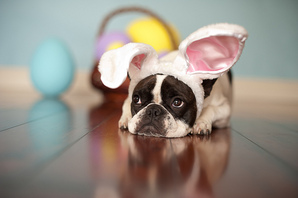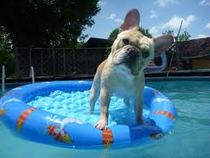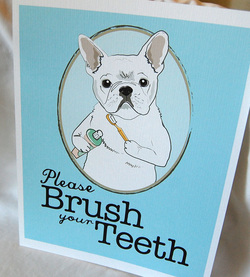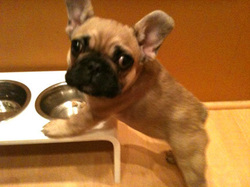 For most people Easter brings egg hunts, baskets and chocolate bunnies. But be careful! These Easter customs can be dangerous to your pets' health. The following seven holiday products are the most common Easter dangers: Eggs - Dyed and Plastic Shiny plastic eggs may look like toys to your pets. If they chew and swallow the plastic, it can cause intestinal problems that may require surgery. Fresh, hard boiled eggs are not dangerous, but eggs spoil quickly. If days later your pet finds and eats an egg that was undiscovered during the Easter hunt, it can make them very sick. Tip: Keep track of the number of eggs hidden and make sure all are accounted for at the end of the hunt. Easter Grass Cats are especially attracted to these shiny shreds, ingesting this "grass" may be lethal. Pets can not digest it, leading to the threads getting stuck in and damaging their intestines. Tip: Try using paper, or even real grass! Chocolate Make sure to tell your kids that sharing with the family pet could make them very sick. Still, supervision is key. Tip: Keep your pets in an "Easter free zone" during the festivities. Easter Lilies Easter lilies are one of the most poisonous plants for pets. Vomiting, lethargy and loss of appetite are symptoms of lily poisoning. Tip: Try faux lilies for the same look without the risk. Candy Too much sugar can also cause digestive upset. Additionally, the foil wrapping around candies can cause internal damage. The sharp pieces may tear your pet's esophagus or intestines. Tip: Be sure to keep a close eye on your pet and clean up all wrappings immediately. Easter Toys Small toys are a choking hazard and should be kept away from cats and dogs. Be sure baskets are kept off the ground, or that pets are kept in another room while baskets are being unwrapped. Tip: Make sure all toys and parts are too big for your pet to fit in their mouth. Baby animals Baby chicks, bunnies and ducks may seem like the perfect Easter basket addition, but think twice! These cute babies grow up into large, adult animals requiring full-time care, & they often carry Salmonella. Tip: Stuffed bunnies and chicks make a much better choice as Easter pets!
1 Comment
 SUNNY DAYS!!! BEWARE HEAT STROKE! Winter is coming to an end & its time for dog parks, frisbee, and dogge playdates! Enjoy! As responsible owners, be aware that heat stroke is a major concern for Frenchies! Your frogdog will play and romp with such energy, and easily overdo in warmer weather. Know what the signs are and how to treat heat stroke. Below are exerpts from Linda Kalmar DVM 's article about heatstroke..... HEATSTROKE
Linda Kalmar, DVM Heatstroke occurs when the body’s normal compensatory mechanisms are overcome. Dogs are inefficient at cooling because they don’t sweat — they can only cool themselves by panting. Certain conditions such as brachycephalic faces and laryngeal paralysis can predispose dogs to heatstroke........ How can heatstroke happen to dogs that belong to smart owners like us? • Dogs left in car • Crated dog left near heat vent • Local weather changes • Travel related weather changes • Unexpected shutoff of A/C at home or in motor home • Dark coated dogs in the sun absorb more heat than light coated dogs Early signs of heat exhaustion: • Heavy panting •Weakness • Confusion / lack of attention • Possibly vomiting /diarrhea • Bright red gums/tongue (and red ears in Frenchies with pink ear linings). The gum should show rapid capillary refill; that is when you draw your fingernail along it the gum should whiten, but then quickly turn red again. • Increased salivation early (often thick, ropey saliva), then no salivation Severe heat stroke signs: • Rapid heartbeat / pulse • Vomiting blood • Bloody diarrhea • Severe ataxia (staggering) • Coma • Gums may turn greyish, blueish, lavender.diarrhea “ “ So I see a dog in distress; what should I do? • Move dog to shade/cooler place immediately • Mist dog heavily with tepid water to cool (BUT NOT COLD) water and turn a fan on it. If no electric fan is available, fan it yourself. The aim is to move air over the dog’s body so at to cause the water to evaporate and “pull” heat with it (evaporative cooling). • DO NOT PLUNGE DOG INTO ICE OR ICE WATER!! The capillaries at the surface of the skin,.....will constrict in response to the cold, thus slowing heat loss and possibly even raising the dog’s core temperature. Even tepid water is much cooler than the dog’s body temp. The most important need is to get the air circulating. * Do NOT lay wet towels on the dog. These warm up rapidly and can actually trap the heat. Air movement past the dog’s damp skin is the key! • Don’t use large amounts of alcohol for cooling as it can be absorbed through the skin and reach toxic levels. Continue to monitor the dog’s rectal temperature and stop cooling efforts when it gets down to 103 F. At that point you can dry the dog off and move the fans back a bit, as you don’t want its temp to drop too far too fast. If the dog is alert it is ok to offer a little cool (NOT ICY) water. Continue taking the rectal temp for awhile to make sure the temp continues to fall. Should it start to rise again, re-mist and fan some more. If the dog was in actual heatstroke — not just the early stages of heat exhaustion — it is vital to get him/her to a veterinary clinic where he/she can be monitored around the clock for two or three days. That’s because when the body temp goes above 106 F, the cells actually “cook” ..........changes occur which can lead to liver and/or kidney failure, ...swelling of the brain......This can then lead to internal hemorrhaging and death.......... If you are able to get a dog in heatstroke to the vet quickly enough, treatment will mostly be supportive: close monitoring, IV fluids, measurement of fluid intake/output, temperature monitoring, steroids.... Dogs who have suffered from severe heatstroke are at increased risk of episodes for the rest of their lives due to damage to the thermoregulatory center in the brain. So remember: PREVENTION IS BETTER THAN TREATMENT!! ******To read the entire article go to http://frenchbulldogclub.org/wp-content/uploads/2012/05/HEATSTROKE.pdf  Frenchie Dental Care HOW TO BRUSH YOUR FRENCHIE"S TEEEEETH..... 1.Wrap gauze or a washcloth around your finger and use it like a toothbrush on the pet’s teeth. This is a gentle way to introduce your pet to brushing. Wipe all the teeth, front and back, with strokes from the gum line to the tip of the tooth. Do this for one to two weeks until your pet is familiar with having its gums and teeth rubbed. 2.Gradually progress to a soft toothbrush and plain water. After a week of using a soft toothbrush, add a small amount of special dog toothpaste. Never use human toothpaste as it may irritate the pet’s stomach. 3.In oval motion brush the front and then the upper and lower teeth in the back at a 45-degree angle to the tooth surface. Scrub in the crevice where the gums meet the teeth, this is where odor and infection begin. 4.Feeding your French Bulldog dry dog food and then offering hard biscuits after each meal can drastically cut down on plaque build-up. The abrasion helps keep plaque to a minimum on the crown of each tooth. Be as proactive in your Frenchie’s health as you are in the lives of your other children. Because after all, they are a vital component of the family unit deserving of love, attention, and time .Untreated teeth can cause serious problems in pet’s health. Like in humans, it can affect other parts of the body. In your pet, they can cause heart and kidney disease. Regular veterinary dental checkups can help prevent serious problems and keep your pet healthy. Pet teeth cleaning includes use of a short-lasting anesthetic that allows for gum line probes, removal of tartar and tooth polishing. A good way to remember to schedule a dental exam is to combine it with your pet’s annual booster vaccinations. Just as important to annual dental exams is dental care at home, such as brushing your pet’s teeth at least three times per week. AAHA suggests this technique for both younger and older animals, although it’s easier to start brushing when the pet is young. Frequent face cleaning is a must!
To keep the wrinkles clean and infection free, daily to weekly face cleaning is recommended. This doesnt have to be a chore.... 1) Baby wipes- use daily to wipe nose wrinkles and inside ears. just a quick wipe down, less than a minute, can keep a fresh Frenchie face! 2)Johnson's baby shampoo- the No More Tears formula can help if you are worried about getting soap in your Frenchie's eyes. With baby shampoo, you can scrub away at that scrunchy face and the eyes are safe! |
AuthorMy name is Caroline and I love my babies! Archives
December 2014
Categories
All
|

 RSS Feed
RSS Feed
